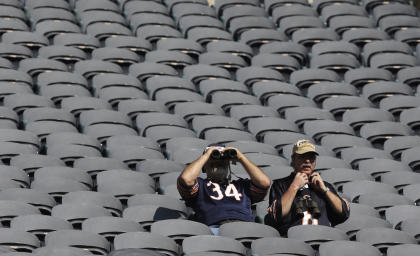FCC votes to end government approval of NFL blackouts

The FCC has voted unanimously to end its support of a decades-old rule allowing the NFL to black out games in markets where tickets remain unsold.
The NFL blocks all local broadcasts of games if a team does not sell out before 72 hours of kickoff. The league did so with the FCC's blessing and backing, but Tuesday's 5-0 vote ends that support.
"The sports blackout rules are a bad hangover from the days when barely 40 percent of games sold out and gate receipts were the league's principal source of revenue," FCC Chairman Tom Wheeler recently wrote. "The NFL no longer needs the government's help to remain viable."
Only two games were blacked out by the NFL last season, and none have been this year. The NFL has warned that if the blackout rule is ended, more games could move from broadcast to cable television, an argument that sounds more like a threat than a defense.
It's worth noting that this action does not prohibit the NFL from enforcing blackouts on its own. This merely ends the government backing and support of the practice. However, the NFL could enter into agreements with its broadcast partners that allow for blackouts under certain conditions.
The NFL has reason to be concerned about shrinking attendance at games, the ostensible reason for mandating the blackouts. On one hand, attending one NFL game means you're missing out on the other half-dozen going on at the same time. HD TVs (and private bathrooms) are far more attractive for a large segment of the viewing public. Plus, the cost of an NFL game has spiraled, and there's always the chance that you'll get swept up in a fight or two.
Still, the blackout rule is an anachronism, and the NFL now has one less reason to tout it as a reasonable business practice.
More NFL coverage:
____
Jay Busbee is a writer for Yahoo Sports. Contact him at jay.busbee@yahoo.com or find him on Facebook and Twitter.

 Yahoo Sports
Yahoo Sports 
